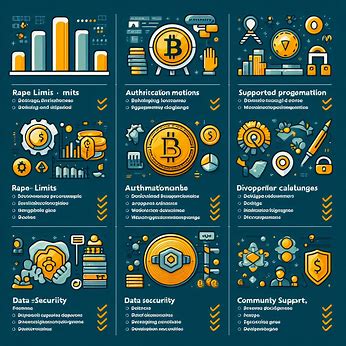Here are some of the best decentralized exchanges (DEXs) for the Arbitrum network:
1.Uniswap
One of the most well-known decentralized exchanges, Uniswap now supports the Arbitrum network. It provides a large selection of trading pairs, an easy-to-use interface, and affordable transaction fees.
2. SushiSwap
SushiSwap is a Uniswap offshoot that has also set up shop on Arbitrum. It includes extra features like yield farming and staking chances in addition to giving customers a trading experience analogous to Uniswap.
3. Balancer
Arbitrum and the well-known DEX Balancer are merged. With its customized trading techniques and multi-asset pools, it provides a distinctive trading experience. Users of Balancer can generate their own liquidity pools and profit from trade commissions.
4. Curve Finance:
Curve Finance has extended to the Arbitrum network and is well-known for its quick stablecoin swaps. It gives liquidity providers the chance to make yields on their investments while offering stablecoin trades with low slippage and fees.
5. DODO
DODO is a decentralized exchange that offers improved liquidity and reduced slippage through the use of a special proactive market maker algorithm. It has made its platform available on Arbitrum, giving customers a different kind of trading.
6. Swapr
Specifically designed for the Arbitrum network, Swapr is a native decentralized exchange. It promises to offer a seamless trading experience with inexpensive costs and quick transaction times. A variety of trading pairs and liquidity pools are available on Swapr.
7. ZigZag Exchange
Another natively developed decentralized exchange on Arbitrum is called ZigZag Exchange. To maximize trade efficiency and lower the risk of front-running, it makes use of a special batch auction methodology. ZigZag provides a range of liquidity pools and trading pairs.
8. GMX
GMX is an Arbitrum-based decentralized spot and perpetual exchange. It provides substantial liquidity, affordable costs, and an easy-to-use trading interface. For its native cryptocurrency, GMX also offers yield farming and staking options.
FAQs
1. What are the advantages of using a DEX on Arbitrum compared to other networks?
Decentralized exchanges on Arbitrum benefit from the network’s faster transaction speeds, lower gas fees, and improved scalability compared to other networks like Ethereum. This means that users can enjoy faster and cheaper trades while still maintaining the security and decentralization of a DEX.
2.Are there any risks associated with using a DEX on Arbitrum?
As with any decentralized exchange, there are certain risks to consider. These include smart contract vulnerabilities, liquidity risks, and potential impermanent loss for liquidity providers. It’s important to conduct thorough research, understand the risks involved, and only invest what you can afford to lose.
3. How do I connect my wallet to a DEX on Arbitrum?
To connect your wallet to a DEX on Arbitrum, you’ll need to ensure that your wallet supports the Arbitrum network. Popular wallets like MetaMask and WalletConnect often have built-in support for Arbitrum. Once you have Arbitrum set up on your wallet, you can visit the DEX’s website and connect your wallet by clicking on the “Connect Wallet” button.
4.What are the fees associated with trading on a DEX on Arbitrum?
The fees for trading on a DEX on Arbitrum typically consist of two components: the trading fee charged by the DEX itself and the gas fee for the transaction on the Arbitrum network. While the trading fees vary depending on the specific DEX, the gas fees on Arbitrum are generally lower compared to other networks like Ethereum.
5.Can I earn rewards by providing liquidity to a DEX on Arbitrum?
Yes, many DEXs on Arbitrum offer liquidity mining or yield farming programs where users can earn rewards in the form of tokens for providing liquidity to the platform. These rewards are usually distributed based on the proportion of liquidity provided and the duration of the liquidity provision.
6.How can I compare the liquidity and trading volume of different DEXs on Arbitrum?
To compare the liquidity and trading volume of DEXs on Arbitrum, you can use various analytics platforms and tools specifically designed for decentralized finance (DeFi). Websites like DeFi Pulse, DeFi Llama, and Dune Analytics provide data and insights on the liquidity, trading volume, and other metrics for DEXs across different networks, including Arbitrum.
7. Are there any DEXs on Arbitrum that specialize in specific types of assets?
Yes, some DEXs on Arbitrum may specialize in certain types of assets. For example, Curve Finance is known for its focus on stablecoin swaps, while other DEXs may have a stronger emphasis on certain types of tokens or trading pairs. It’s worth exploring the different DEXs to find the one that best suits your trading needs and preferences.
8. Can I trade directly from my hardware wallet on a DEX on Arbitrum?
Yes, most DEXs on Arbitrum support integration with hardware wallets like Ledger and Trezor. By connecting your hardware wallet to your preferred web3 wallet (e.g., MetaMask) and ensuring that you have Arbitrum set up, you can interact with DEXs on Arbitrum directly from your hardware wallet, providing an added layer of security for your funds.







